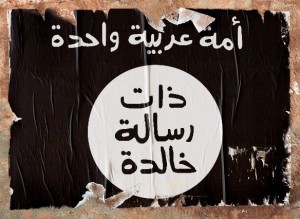Three cities, three attacks, one perpetrator—last week Europe and the Middle East experienced a new form of “reign of terror.” From car bombings to gunpoint, the cities of Beirut, Baghdad, and Paris were no short of escape. The Islamic State in Iraq and Syria, formally known as ISIS, has officially claimed responsibility for these attacks.
On Thursday night, Beirut, Lebanon went up in flames after a double suicide bombing occurred in the streets of a suburban shopping district. Over 200 were wounded in the attack and at least 41 reported as dead. BBC news remarks this bombing as the “deadliest the capital has seen with the end of Lebanon’s civil war in 1990. “
the capital has seen with the end of Lebanon’s civil war in 1990. “
Witnesses described their experience of the attack, “I’d just arrived at the shops when the blast went off. I carried four bodies with my own hands, three women and a man, a friend of mine,” a civilian, Zein al-Abideen Khaddam, told his local television.
In response to this attack, Prime Minister Tammam Salam sent a statement to the country by which he declared the attacks “unjustifiable.” He encouraged Lebanon to take up unity amidst the attempts to bring discord to the country. U.S. Secretary of State, John Kerry, also urged peace for those attending the Syrian peace talks that would occur later that weekend.
Just hours after the Beirut attack, two other suicide bombings occurred in the city of Baghdad, Iraq. The first explosion went off at a funeral held for a Shia fighter in the Al-Ashara al-Mubashareen mosque, in south Baghdad. A total of 21 were killed, in addition to 41 others who were critically wounded. Later that day, a roadside bomb also went off at a Shia shrine that killed at least five and wounded 15 others. ISIS has taken responsibility for both of these occurrences.
A statement distributed on a pro-ISIS social media account claimed that the aim of Friday’s attacks was “revenge for our monotheist brothers in al-Fallujah, al-Anbar, and Salahaldin,” referring to the Iraqi military operations to retrieve land they had lost to ISIS.
In closing the symphony of terror, ISIS militants conducted six last gun and bomb attacks across Paris, France on Friday night. It was the deadliest terrorist attack that Europe has seen since the Madrid train bombings in 2004. Paris prosecutor, Francois Molins, reported a death toll of at least 129 people, in addition to the other 352 wounded in the entirety of the attacks. According to CNN, seven terrorists were killed in the bombing. However, ISIS claimed eight perpetrators were involved in the operation. This led Mollins to release a statement cautioning the nation that the “threat may still be on.”
The first and deadliest attack occurred in the Bataclan concert hall, which totaled 89
causalities. It was reported that three attackers with assault rifles entered the concert and opened fired. They then proceeded to take the audience hostage and systematically shoot them in front of the stage, after delivering a brief address on ISIS.
In response to the terror, French president, Francois Hollande, declared a state of emergency across France in hopes of both limiting mobility and implementing zones of security and protection. The French government also responded with airstrikes to bomb Raqqa, an ISIS stronghold in Syria. However, there was much backlash towards the government on this rash decision.
The situation took another complex turn when one of the terrorist’s was found to be a Syrian refugee. This not only unveiled a new set of debates in the Syrian Refugee Crisis, but also gave way to increased ill-tempered feelings amongst local civilians towards the marginalized group, though the terrorist was only a diminutive representation of the entire refugee population. But the opposing argument lies with the issue of hopelessness. Due to their vulnerability, the idea of thousands of hopeless, refuged, young men makes for an easy opportunity to attain “cheap recruits.” Whether this is true in the case of Syria, the disagreement lies more with the response to it. While some believe this calls for resettlement, others see as a chance for internal progressive projects.
Continual Group Twenty (G20) meetings will be held in Turkey to discuss plausible action plans for all three terror attacks. As for the U.S., President Obama has agreed to expand intelligence sharing with France in an effort to better combat terrorism. The discussion will continue into the week until an agreement is met.
